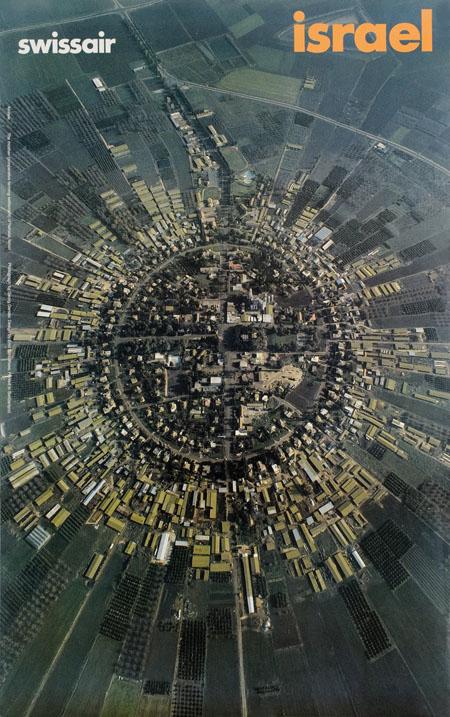Source: http://bnarchives.yorku.ca/227/02/20070312_orr_homage_to_nissan_rilov_we...
Homage to Nissan Rilov
Akiva Orr
Tnuvot, Israel, March 2007
The Israeli painter Nissan Rilov died in Paris on Saturday, March 10, 2007.
He was one of the few children in the first Zionist Moshav in Palestine – Nahalal (founded 1921).
Moshav members owned their houses and plots (leased by the Zionist authorities who acquired the lands as “Property of the Jewish People”) but cooperated in working the land. The “Jewish Agency” rules forbade them to employ Arabs as hired labor.
Rilov’s father was in charge of the defense of Nahalal against surrounding Palestinian villagers whose lands were sold by their owners to Zionist authorities.
Most lands belonged to Arab owners living in cities who leased it to the peasants. Often the peasants did not know the owner had sold their lands. Nahalal was erected on lands of the former Palestinian village Ma’alul.
Rilov was a childhood friend of Moshe Dayan who also grew up in Nahalal. The poetess Hana Senesh (who parachuted into Hungary in WW2 and was killed there) was a student in the Agricultural College for Girls in Nahalal, and Rilov was her boyfriend.
During the Great Rebellion of the Palestinian Arabs (1936-1939) against British Rule in Palestine, Nissan joined the Special Night Squads (SNS) organized by British Army officer Charles Orde Wingate.
Wingate mobilized Jewish boys to form mobile squads moving at night into Palestinian villages to preempt Palestinian attacks on the oil pipeline from Kirkuk in Iraq to Haifa in Palestine.
The Palestinian rebels would dig up the pipeline in the Valley of Jezreel, shoot into it and then set fire to the oil spurting upwards. The pillar of fire was seen for many miles around and demonstrated British inability to stop it – thus encouraging more Palestinians to join the rebellion.
Wingate decided to stop this. He used the SNS for this task.
Nissan related how Wingate took them one day into a village whose inhabitants he suspected of giving food and shelter to the rebels who blew up the pipeline nearby.
He told the SNS to bring all male peasants aged 16 to 60 to the village central square and organize them in a big “U”. He then called one peasant to stand next to him in the open side of the “U” and shouted: “In whose house did the rebels stay last night?”
When no one answered he hit the skull of the peasant next to him with the rifle butt. He repeated his question and when again no one answered he repeated the blow. He went on without receiving a reply until he smashed the skull of that peasant, killing him.
Watching this spectacle Nissan vomited.
Wingate then told the SNS boys to dunk rags in petrol and throw them in front of each peasant, forcing each peasant’s head into the rag as one does to cats that relieve themselves on an expensive carpet.
When the SNS left this village Wingate said to them: “I can afford to behave like this because I’ll leave this country. You must not do it as you will stay here and live with them”.
A short time later Rilov was called to disperse Palestinian peasant women who obstructed the Jewish tractors coming to plough lands recently acquired from Arab landlords. The women lay across the dirt tract and the tractor could not pass, so Rilov and the Jewish boys had to pull them by their legs off the track.
He told me that this experience put an end to his Zionist convictions.
Next night he was on duty in an ambush against peasants who returned to their former plots to pick their vegetables. It was full moon and he saw an old peasant picking vegetables. His “Haganah” commander ordered him to shoot the peasant but he refused, saying: “I don’t shoot old people”.
He was court-martialled and expelled from the “Haganah”.
This meant also excommunication by his family and friends. He could not stay in Nahalal where he was treated as a Pariah. He left Nahalal and moved to Tel-Aviv where joined the Palestine Communist Party (which was an illegal organization).
Shortly afterwards WW2 broke out and he joined the British Army.
After WW2 he returned to Palestine. He studied painting in the school of Avni and in the early 1950s emigrated to Paris, where he worked first as a builder and studied painting. Soon he succeeded to sell his paintings. He developed a unique technique of tearing up painted sheets to create collages. The result was neither naturalistic nor abstract but it had an emotionally coherent effect.
He remained active in supporting the Palestinian struggle for independence, and during the first Intifada (1987-1992) he staged an art exhibition entitled “Stones” to support the stone-throwing Palestinian peasant women.
He was a simple man, with hands and soul of an honest, hard working, peasant. He had a strong sense of morality and the courage not to bend it under pressure of majority, friends, and family, even if this cost him dearly.
There are not many such people around.
Missing Nissan,
Aki ORR

